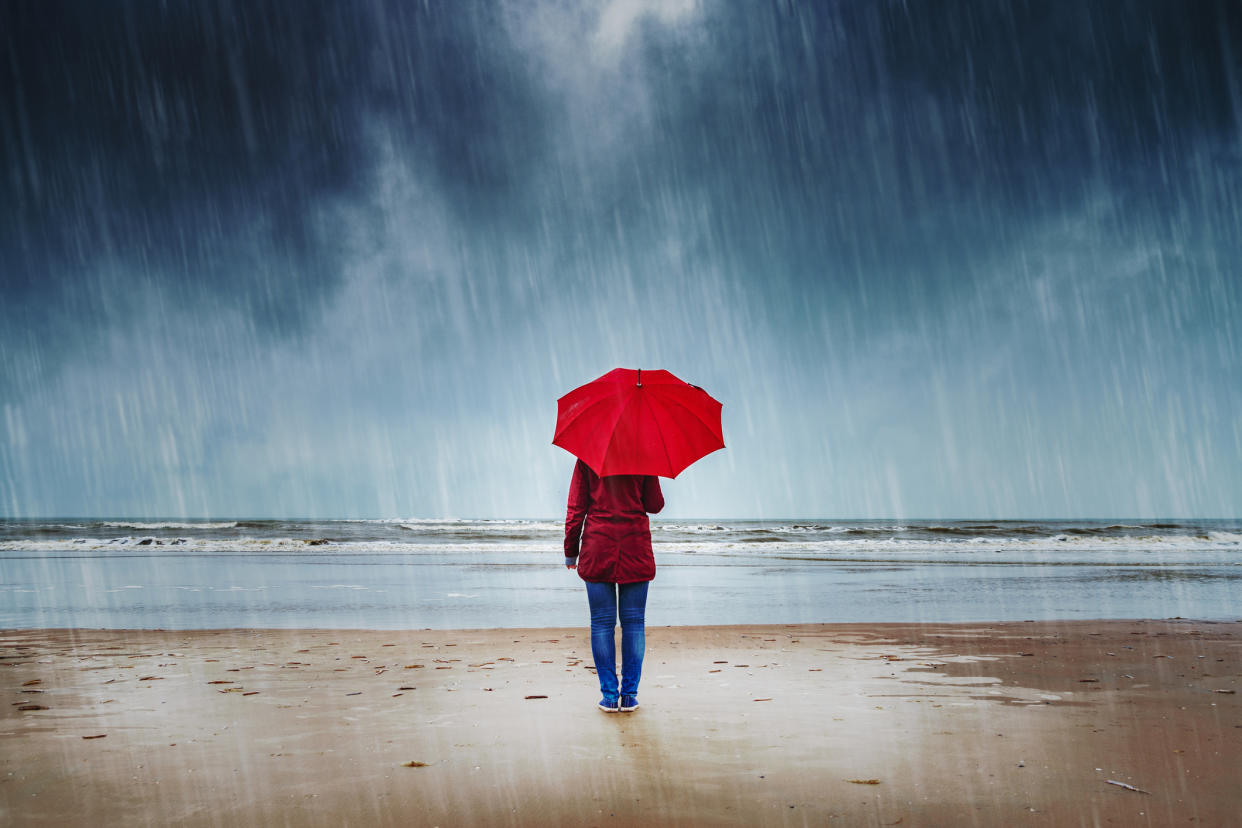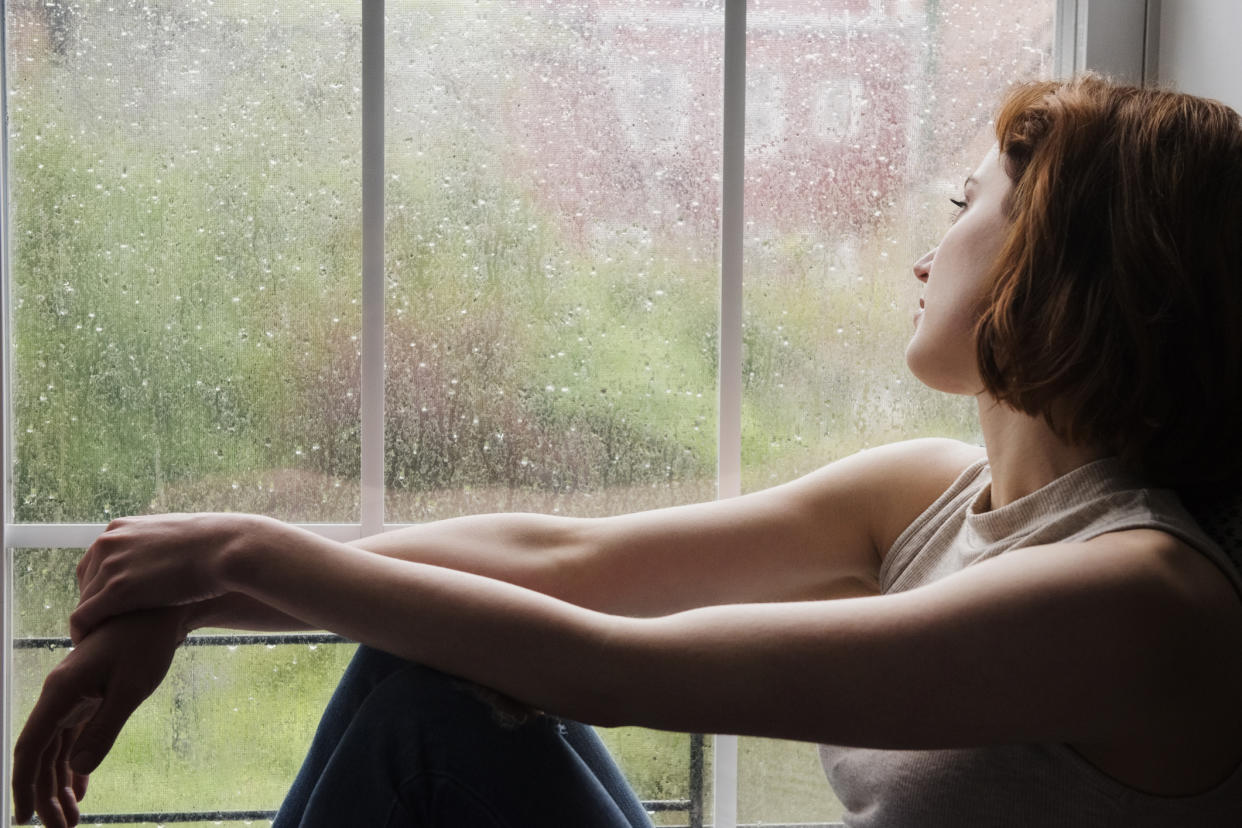UK weather: What impact is the 'wettest summer' having on our mood and mental health?

Aside from the odd day of sunshine, summer 2023 has been something of a wash out so far this year.
With June already declared the the wettest ever for the UK, according to national records, and a wetter-than-average July following suit, we've been left wondering if the warm weather will ever return?
But it seems as well as a lack of sun-kissed skin, the continuous gloomy skies is taking it's toll on other aspects of our lives, most notably our mood.
How does bad weather impact our mental health?
While a brief spell of rain may lift your spirits, prolonged rainy days can have the opposite effect.
Dr Elena Touroni, a consultant psychologist and co-founder of The Chelsea Psychology Clinic says the weather can subtly influence our emotional state, often without us noticing.
"Rainy and dreary days can leave people feeling low, isolated or melancholic," she explains.
The main culprit for the, Dr Touroni says, is a reduction in our exposure to sunlight.
"It can be tempting to stay indoors during rainy periods, which can lead to decreased exposure to both light and less vitamin D," she explains.
Read more: When will the next UK heatwave happen in 2023? (Yahoo News UK, 8-min read)

Known as the "sunshine vitamin", vitamin D helps regulate our mood.
"It’s instrumental in the release of mood-enhancing neurotransmitters such as dopamine and serotonin," Dr Touroni adds.
Turns out there are a number of other scientific reasons why dreary days can take their toll on our mood, including something known as "sensory dulling".
"Our brain thrives on sensory input," explains psychologist and relationship adviser Barbara Santini. "On rainy days, the lack of colour contrasts, muffled sounds, and reduced sunlight can deprive the brain of diverse stimuli. This lack can lead to feelings mirroring the environment - subdued, grey, and muted. Over time, reduced sensory experiences can contribute to feelings of isolation or low mood."
Santini says the double-edged sword of social media can exasperate those feelings further.
"In our digital age, we're bombarded by curated moments of others," she explains. "When juxtaposed against others' seemingly perfect sunlit days, our rainy days might feel even gloomier, feeding into a cycle of comparative discontent."

And of course, when we're unable to get outside and enjoy the mood-enhancing benefits of nature, cabin fever can easily start to set in.
"Recent societal events, including pandemics and lockdowns, have already introduced many to the strains of cabin fever," Santini explains. "Wet weather amplifies this, adding to the prolonged feelings of being confined and restricted."
Read more: Mental health: Where to get help if you're struggling (Yahoo Life UK, 5-min read)
How to get over the weather doom
While the Met Office has predicted that any drier, warmer weather will most likely be later in August, while we wait for the sun to get its hat back on there are some steps we can take to lift the gloomy mood.
Get outside
At least once a day. "Research has shown that just one short, daily exposure to nature provides a natural boost to our mental wellbeing for up to 7 hours," Dr Touroni explains. "Remind yourself that the benefits of nature remain unaffected by the weather!"
Watch: Torrential rain and soaring temperatures: Europe gripped by extreme weather
Plan things to look forward to
Having things to look forward to can enhance our resilience and build our ability to cope with daily life. "In therapy, it’s a psychological strategy we encourage people to use," Dr Touroni explains. "Make sure you plan plenty of activities that give you something to look forward to, regardless of the weather."
Flip the narrative
As the saying goes, “there’s no such thing as bad weather, only unsuitable clothing”, so get in your waterproofs and venture out.
"Try and connect with how you felt as a child, playing in the rain and splashing around in puddles," Dr Touroni recommends.
"Remind yourself that rain sustains our existence - without it, we wouldn’t thrive."
Read more: What is claustrophobia – and why does it frighten us? (Yahoo Life UK, 5-min read)

Practice mindful acceptance
While it might sound counterintuitive, accepting and acknowledging our feelings towards the weather can be liberating.
"It's not about suppressing discomfort but understanding that it's natural to feel this way," explains Santini. "By recognising these feelings, we can respond to them more constructively."
Get your senses going
Fight sensory dullness with sensory richness. "Even indoors, things like aromatherapy, textured fabrics, or experimenting with culinary flavours can act as stimuli, invigorating our brain," Santini advises.
Go virtual
According to Santini virtual reality or simply immersive video experiences of sunlit beaches or mountain treks can provide psychological relief, offering a brief escapism that our brain often craves.
Get moving
Neurologically, even small movements can have an impact. "Simple indoor exercises, stretching, or even playful activities can reignite the brain's reward centres," Santini explains.


